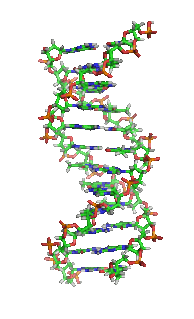 W
WIdentity theft occurs when someone uses another person's personal identifying information, like their name, identifying number, or credit card number, without their permission, to commit fraud or other crimes. The term identity theft was coined in 1964. Since that time, the definition of identity theft has been statutorily defined throughout both the U.K. and the United States as the theft of personally identifiable information. Identity theft deliberately uses someone else's identity as a method to gain financial advantages or obtain credit and other benefits, and perhaps to cause other person's disadvantages or loss. The person whose identity has been stolen may suffer adverse consequences, especially if they are falsely held responsible for the perpetrator's actions. Personally identifiable information generally includes a person's name, date of birth, social security number, driver's license number, bank account or credit card numbers, PINs, electronic signatures, fingerprints, passwords, or any other information that can be used to access a person's financial resources.
 W
WCarding is a term describing the trafficking and unauthorized use of credit cards. The stolen credit cards or credit card numbers are then used to buy prepaid gift cards to cover up the tracks. Activities also encompass exploitation of personal data, and money laundering techniques. Modern carding sites have been described as full-service commercial entities.
 W
WCredit card fraud is an inclusive term for fraud committed using a payment card, such as a credit card or debit card. The purpose may be to obtain goods or services, or to make payment to another account which is controlled by a criminal. The Payment Card Industry Data Security Standard is the data security standard created to help businesses process card payments securely and reduce card fraud.
 W
WIn bioethics and law, gene theft or DNA theft is the act of acquiring the genetic material of another individual, usually from public places, without his or her permission. The DNA may be harvested from a wide variety of common objects such as discarded cigarettes, used coffee cups, and hairbrushes. In addition, a variety of people can be interested on collecting someone’s genetic material. This includes the police, political parties, historians, professional sports teams, personal enemies, etc. DNA contains adequate amount of information about someone and it can be used for many purposes such as establishing paternity, proving genealogical connections or even unmasking private medical conditions.
 W
WIdentity Guard is an identity theft protection service based in Herndon, Virginia. The service offers several different identity theft protection products to help consumers protect themselves from identity fraud and misuse. Identity Guard is a subsidiary of Intersections Inc.
 W
WInternet fraud is a type of cybercrime fraud or deception which makes use of the Internet and could involve hiding of information or providing incorrect information for the purpose of tricking victims out of money, property, and inheritance. Internet fraud is not considered a single, distinctive crime but covers a range of illegal and illicit actions that are committed in cyberspace. It is, however, differentiated from theft since, in this case, the victim voluntarily and knowingly provides the information, money or property to the perpetrator. It is also distinguished by the way it involves temporally and spatially separated offenders.
 W
WThe security features governing the security of an identity can be divided into three levels of security, i.e. Level 1 Security (L1S) (Overt), Level 2 Security (L2S) (Covert) and Level 3 Security (L3S) (Forensic). The three levels of security, in combination, provide comprehensive security coverage for identities and related documents to ensure their validity and authenticity. These are typically used to protect identity information on crucial documents such as identity cards, driving licenses and passports to ensure originality and accuracy of the identities they represent. The diagram below illustrates the different levels of security and how they ensure complete security coverage of an identity.
 W
WPhishing is a type of social engineering where an attacker sends a fraudulent ("spoofed") message designed to trick a human victim into revealing sensitive information to the attacker or to deploy malicious software on the victim's infrastructure like ransomware. Phishing attacks have become increasingly sophisticated and often transparently mirror the site being targeted, allowing the attacker to observe everything while the victim is navigating the site, and transverse any additional security boundaries with the victim. As of 2020, phishing is by far the most common attack performed by cyber-criminals, with the FBI's Internet Crime Complaint Centre recording over twice as many incidents of phishing than any other type of computer crime.
 W
WThe Riches is an American television drama which was originally broadcast from March 12, 2007 to April 29, 2008 on FX. The series stars Eddie Izzard and Minnie Driver as members of a family of Irish Travellers who "steal the American dream" by stealing the home and identities of a wealthy dead couple. The series received positive reviews but was cancelled after two seasons.
 W
WSpyware is software with malicious behavior that aims to gather information about a person or organization and send it to another entity in a way that harms the user. For example, by violating their privacy or endangering their device's security. This behavior may be present in malware as well as in legitimate software. Websites may engage in spyware behaviors like web tracking. Hardware devices may also be affected. Spyware is frequently associated with advertising and involves many of the same issues. Because these behaviors are so common, and can have non-harmful uses, providing a precise definition of spyware is a difficult task.
 W
WThe Identity Theft Resource Center is a United States non-profit organization founded to provide victim assistance and consumer education through its toll-free call center, website and social media. The ITRC educates consumers, corporations, government agencies, and other organizations on best practices for fraud and identity theft detection, reduction and mitigation; and, serves as a relevant national resource on consumer issues related to cybersecurity, data breaches, social media, fraud, scams, and other issues. It was created in December 1999 in San Diego, California.